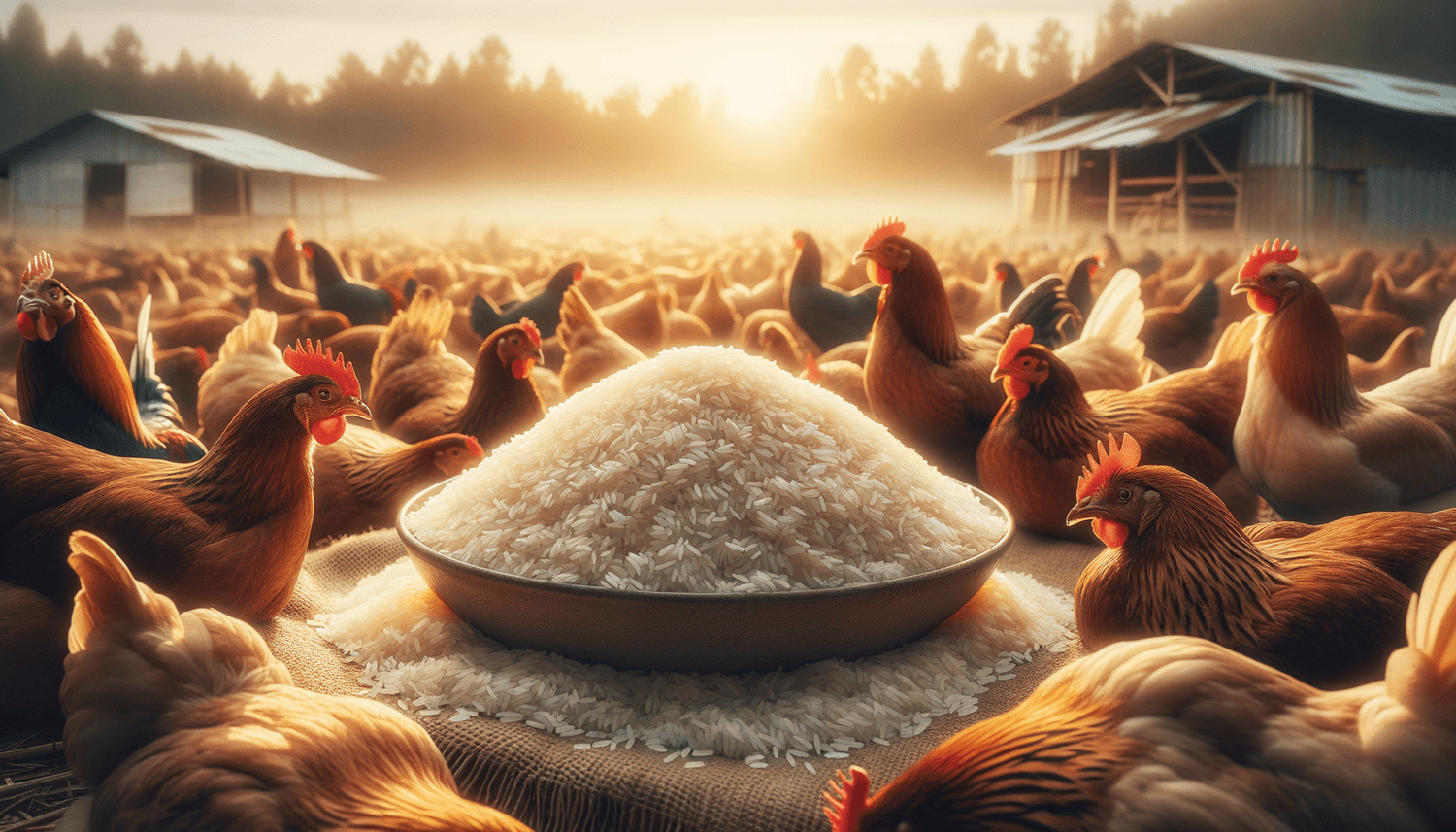Hey there, clucky friends! I bet you’re wondering if the next time you cook up a piping hot pot of rice, you can share that tasty goodness with your fluffy, feathered backyard companions. Well, you’ve come to the right place! In this blog post, we’re going to dish out the details on whether chickens can eat cooked rice or not, chat about the value of a balanced diet for our feathered friends, discuss any benefits and/or risks associated with sharing this starchy staple, delve into its nutritional value, and also figure out the perfect preparation method for serving up this grainy goodness to your clucking crew. Let’s get crackin’!
Can chickens eat cooked rice?
Yes, chickens can safely eat cooked rice! It makes for a delightful treat for those feathery friends every now and then, and they absolutely love it. However, it’s essential to ensure the rice is cooked, since uncooked rice can pose health risks for chickens due to its hard texture and potential for expansion when moistened.
A balanced diet for your backyard buddies
Just like us humans, chickens need a well-rounded, balanced diet to stay in tip-top shape and live their happiest, healthiest lives. The cornerstone of a wholesome chicken diet is the ever-so-crucial high-quality chicken feed, which should make up no less than 80-90% of their daily nutritional intake.
Chicken feed is crucial because it’s specifically formulated to provide your feathered friends with the right proportions of essential nutrients, vitamins, and minerals to keep them clucking contentedly. Now, what about the remaining 10-20% of their diet? Well, that’s where tasty treats like fruits and vegetables come into play! These scrumptious nuggets not only offer variety but also supply additional vitamins and minerals to keep your flock bright-eyed and bushy-tailed.
Nutritional value of cooked rice for chickens.
When it comes to feeding cooked rice to chickens, it’s important to note that while it isn’t the most nutritionally dense treat, it still has some benefits to offer. Cooked rice mainly provides carbohydrates, which serve as an excellent source of energy for your feathered friends, helping to fuel their day-to-day activities and maintain their overall health.
That being said, cooked rice lacks significant amounts of vitamins and minerals when compared to other treats such as fruits and vegetables. However, its hydrating properties can be valuable in keeping your chickens well-hydrated, particularly during hot summer months when dehydration can pose a threat to their well-being.
Although cooked rice may offer some hydration and energy benefits, it’s essential to remember that it should not replace other essential components of their diet. Instead, consider it as an occasional treat meant to supplement their nutritional intake and provide variety. This way, your flock continues to receive the diverse nutrients they need to thrive, while also enjoying the delicious and satisfying taste of cooked rice from time to time.
Nutrition table of cooked rice for chickens.
| Information | Description |
|---|---|
| Nutritional Value | Primarily provides carbohydrates as a source of energy, but lacks significant vitamins and minerals. |
| Suggested Serving Size | A small handful or around 1/4 cup per chicken as an occasional treat. |
| Safe Feeding Practices | Always feed cooked rice in moderation, ensuring that it’s properly cooked and cool before serving. |
| Preparation | Cook rice according to package instructions, and allow it to cool down completely before feeding. |
| Potential Risks | Uncooked rice can be harmful, expansion when moistened may pose health risks. Overfeeding cooked rice may result in imbalanced diet. |
| Hydration | Provides some hydration benefits, particularly beneficial during hot weather. |
| Digestion | Cooked rice is easy for chickens to digest, reducing the risk of digestive issues. |
| Seasonal Availability | Rice is widely available throughout the year, making it a convenient treat option. |
| Other Benefits | Can help in adding variation to chickens’ diet, improving their overall feeding experience. |
Alternate treats for chickens
In addition to cooked rice, there are plenty of other delicious and nutritious treats you can offer your chickens to satisfy their curiosity and palate. Some highly recommended options include leafy greens, vegetables, and fruits. Lettuce, kale, cabbage, spinach, and Swiss chard are just some of the nutritious greens that bring both taste and the essential vitamins and minerals to your flock’s diet.
Don’t forget that berry-loving chickens will appreciate fruits such as strawberries, blueberries, and raspberries, which are not only tasty but also provide vital antioxidants. Veggies like carrots, broccoli, and sweet potatoes are excellent choices as well, providing vitamins A and C, along with essential fibers.
Bottom line: Moderation is key
Overall, the key to ensuring your chickens receive the best possible nutrition lies in variety and moderation. While cooked rice can serve as an occasional treat, it is important to mix it with other, more nutrient-dense options to maintain a well-rounded diet for your feathery friends. By offering your flock an array of wholesome treats and a good quality chicken feed, you’ll keep them healthy, happy, and clucking about in your backyard for years to come.

















